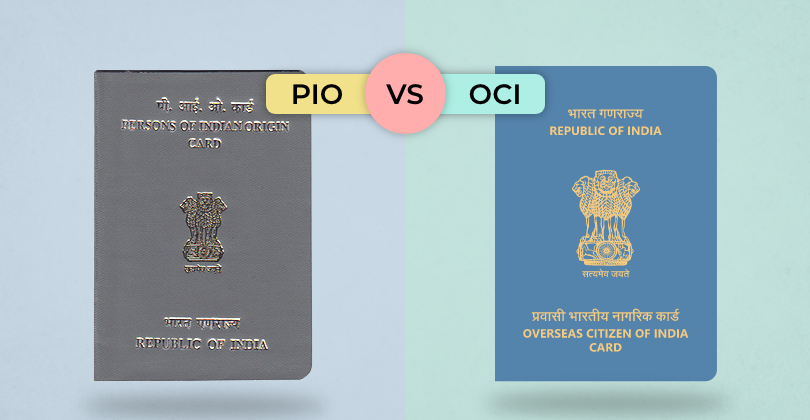Are you of Indian origin and living abroad? You've probably come across terms like PIO and OCI. These cards offer different benefits, but it can
The financial industry has seen an unprecedented shift in recent years. The swift development of financial technology, or FinTech, is driving this shift. India, a country with a developing economy, a sizeable population, and an expanding middle class, is where FinTech's effects are most noticeable.
Technology and finance are coming together to change how Indians manage their finances, access financial services, and engage with established banking institutions. Renowned institutions and digital lending platforms like KreditBee are leading the way in employing technology to offer quick personal loans to young professionals. This demonstrates the practical ways in which FinTech is solving real financial needs in the economy.
In this article, we explore the profound influence FinTech is likely to have on the future of India and traditional banking.
The Rise of FinTech in India
FinTech encompasses a wide range of technological innovations aimed at improving and automating financial services. From mobile payments and digital lending to robo-advisors and blockchain-based solutions, FinTech is changing the way people perceive and avail themselves of finance and financial services. With its vast and diverse population, India is uniquely positioned to benefit from FinTech innovations.
Let's delve into the key areas where FinTech is shaping the Indian financial landscape:
-
Financial Inclusion: Bridging the Gap
India is home to a substantial population that remains unbanked or underbanked due to geographical limitations and a lack of access to traditional banking services. FinTech is acting as a bridge, connecting these underserved populations to the formal financial system.
Mobile-based digital wallets and payment platforms have enabled even remote villagers to execute transactions, pay bills, and even save money, all without needing a physical bank branch. FinTech's user-friendly interface options and simplified processes have made financial services accessible to millions who were previously excluded.
Positioned to Embrace the Finance of Tomorrow? Secure Your Loan on KreditBee Today!Apply Today! -
Digital Payments Revolution
The rise of FinTech has coincided with the digital payments revolution in India. Government initiatives like the Unified Payments Interface (UPI) have laid the foundation for a cashless economy.
Mobile payment apps like Paytm, PhonePe, and Google Pay have become household names, allowing users to make seamless peer-to-peer transfers, pay bills, and shop online.
Even small businesses are adopting QR code-based payments, reducing their dependence on cash transactions. This shift towards digital payments is not only more convenient but also has the potential to combat corruption and improve financial transparency.
-
Disrupting Traditional Lending
Traditional lending processes often involve lengthy paperwork, credit checks, and collateral requirements. However, FinTech platforms like KreditBee are spearheading a revolution in lending by offering quick and hassle-free digital loans.
Leveraging alternative data sources such as transaction history, social media activity, and even psychometric assessments, FinTech lenders can accurately assess creditworthiness. This approach empowers them to provide personal loans to individuals and small businesses that would have otherwise been overlooked by traditional banks.
KreditBee stands out as a prime example of this transformation, democratising access to credit and invigorating entrepreneurship across India. This shift signifies how FinTech's innovative approach is not only streamlining lending processes but also redefining financial inclusion norms.
📗 Related reading- Best Personal Loan Providers in India - 2023
-
Personal Finance Management
FinTech applications are empowering individuals to take control of their finances. Budgeting apps, investment platforms, and robo-advisors offer personalised financial advice and insights, helping users make informed decisions about saving, investing, and managing debt.
These tools are particularly appealing to India's tech-savvy youth, who are eager to manage their money effectively and plan for their financial futures.
-
Insurance and Wealth Management
The insurance and wealth management sectors are also undergoing transformation through FinTech innovations. Insurtech startups are using data analytics and machine learning to offer tailored insurance solutions at competitive prices.
Similarly, wealth management platforms are providing low-cost investment options and advisory services to investors of all sizes. This democratisation of wealth management is challenging traditional financial institutions to adapt to and offer more customer-centric services.
Impact on Traditional Banking
As FinTech continues to gain momentum, traditional banking institutions in India are being forced to evolve or risk becoming obsolete. Here are some ways in which FinTech is reshaping traditional banking:
-
Digital Transformation
To stay relevant in the digital age, traditional banks are investing heavily in technology to enhance their services. Online banking platforms, mobile apps, and digital customer service channels have become commonplace. These institutions are also partnering with FinTech startups to offer innovative solutions and tap into new customer segments.
-
Customer-Centric Approach
FinTech's customer-centric approach has set new standards for service quality and convenience. Traditional banks are now compelled to prioritise customer experience, streamlining their processes and digitising services to match the user-friendly interfaces of FinTech platforms.
-
Competition and Collaboration
FinTech startups are not just competitors; they're also potential collaborators. Many traditional banks are embracing open banking APIs (Application Programming Interfaces) to allow third-party FinTech developers to build applications and services on top of their systems.
This collaboration benefits both sides, as customers have access to a broader range of services, and banks can tap into FinTech innovations without having to build them from scratch.
-
Regulatory Challenges
The rapid evolution of FinTech has posed regulatory challenges for both startups and traditional banks. Regulators must strike a balance between promoting innovation and ensuring consumer protection, data security, and financial stability. This delicate equilibrium is crucial to foster a healthy FinTech ecosystem in India.
Ready to Embrace the Future of Finance? Get a Loan on KreditBee.Apply Now!
Looking Ahead: The FinTech Revolution Continues
The FinTech revolution in India is still in its infancy, and in the years to come, its impact is anticipated to increase enormously. Areas like blockchain, artificial intelligence, and Decentralised Finance (DeFi) are primed to significantly disrupt the financial sector as technology develops.
-
Blockchain and Digital Identity
Blockchain technology has the potential to transform how financial transactions are conducted, making them more secure, transparent, and efficient. Additionally, blockchain-based digital identities could help individuals establish their credentials securely and access financial services with ease, reducing fraud and enhancing privacy.
-
Artificial Intelligence (AI) and Data Analytics
AI-powered algorithms are already being used to improve credit score, risk assessment, and fraud detection. As AI continues to evolve, it could lead to hyper-personalised financial services and predictive analytics that anticipate customer needs and behaviours.
-
Decentralised Finance (DeFi)
Decentralised Finance (DeFi) is an emerging trend that leverages blockchain technology to recreate traditional financial services, such as lending, borrowing, and trading, in a decentralised manner. DeFi platforms have the potential to bypass intermediaries and offer more accessible and efficient financial services to the masses.
The Bottom Line
In the midst of India's FinTech revolution, notable names like KreditBee have emerged as pioneers in reshaping the financial landscape. KreditBee, a digital lending platform, has harnessed technology to provide instant personal loans to young professionals, offering a seamless and efficient borrowing experience.
This success story exemplifies how FinTech companies are addressing real-world financial needs with innovative solutions.
As India marches towards a more inclusive and tech-driven financial ecosystem, initiatives like KreditBee showcase the potential for collaborations between traditional banking and FinTech. They highlight the transformative power of technology in fostering financial inclusion and improving access to credit for millions across the country.
AUTHOR
KreditBee As a market leader in the Fintech industry, we strive to bring you the best information to help you manage finances better. These blogs aim to make complicated monetary matters a whole lot simpler.







